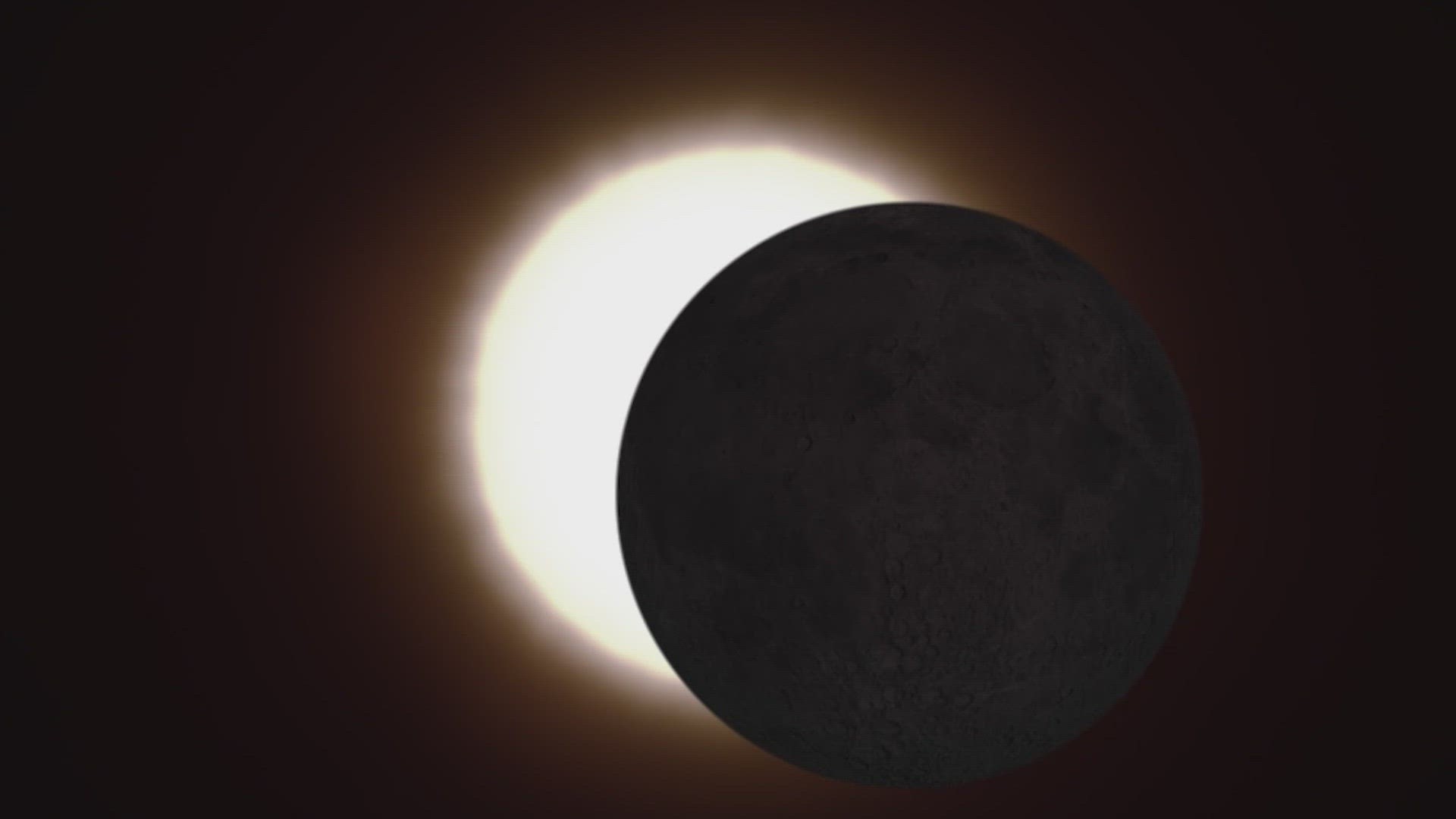A total solar eclipse is a beautiful astronomical phenomenon that can now be explained with science, but before science, many cultures had their own theories about what caused an eclipse.
Some of those myths have been passed down, leading to modern-day superstitions.
"As humans, we seek some sort of meaning," said David Cook, a religious professor at Rice University.
Some cultures believe the eclipse happened when dragons attacked the moon. Other cultures, like the Aztecs, believed a jaguar would eat the sun. Those stories help explain the meaning behind many cultural traditions.
"Obviously, the sun is absolutely central to human existence and so the covering of the sun, ever since the time has been, something people have commemorated," said Cook.
That leads us to the superstitions that have been passed on for generations, according to medical professor Dr. Joseph Varon, with the University of Houston.
"For example, Persian people believe if a pregnant woman touches her face during an eclipse the baby will come out with a birthmark," said Dr. Varon.
It's not just the Persians. Dr Varon said his Hispanic patients have come up to him asking him about their pregnant superstitions, like wearing red underwear or a safety pin while pregnant.
Remember that Aztec beliefs of the Jaguar eating the sun? This evolved into the Mexican warning for pregnant women who looked at an eclipse because a bite, from the jaguar, would be taken out of their unborn child's face.
"If you are exposed to an eclipse, pregnant ladies, the baby may come out without a piece of their face," Dr. Varon said he's heard. "A cleft palate."
Dr. Varon said he explains science to his patients.
"First I tell them that there is no data whatsoever," he said.
But he knows that ultimately you have to be respectful of people's beliefs.
"I just tell them what science says," Dr. Varon said.
He knows his patients will still do what brings them peace of mind.
"You are talking of hundreds of years of tradition that a single health care provider is not going to change no matter what," said Varon.
But one thing is for certain, looking directly at the eclipse without protective glasses is not safe.
"The damage from looking at the sun too long can be short-term or long-term," said Tim McCulley the chair of the Department of Optomology at UTHealth.
In the end, the best thing to protect yourself when enjoying the eclipse is to wear ISO-certified eclipse glasses.
To read a full list of misconceptions from NASA you can check out this website.

